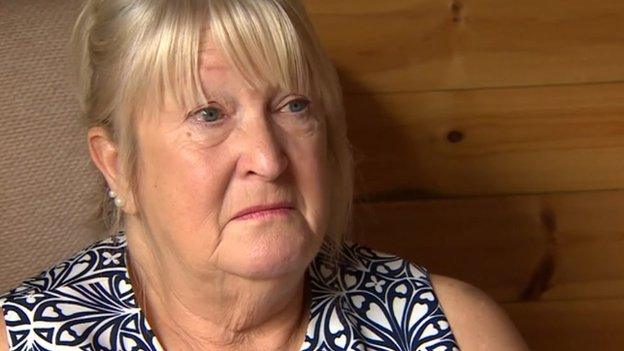David Cameron invites Labour's Harman to IS meeting
- Published
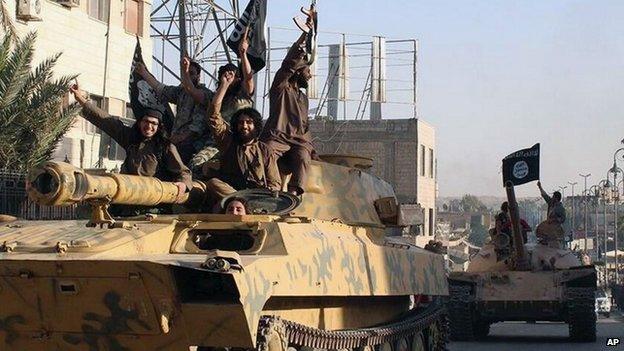
David Cameron has invited acting Labour leader Harriet Harman to a high-level security meeting about the threat posed by Islamic State (IS) extremists.
The government is seeking support from Labour MPs to extend the RAF's air campaign to strikes against IS targets in Syria, as well as Iraq.
Labour has hinted it would not oppose action in Syria, as it did in 2013.
Ms Harman will join senior ministers and military chiefs at Tuesday's National Security Council meeting.
The last time a Labour leader received such an invitation was in 2013.
Doubtful backbenchers
The prime minister believes IS fighters need to be confronted in Syria, where the US are conducting operations, but will not take military action without a Commons vote.
Some Conservative backbenchers have expressed doubts about further action in the absence of a wider diplomatic strategy so Mr Cameron is reluctant to ask MPs to vote to extend the campaign unless he has Labour's backing.
A Number 10 spokesman said: "The PM thought it was important to ensure the leader of the opposition was fully briefed on the current situation."
Shadow defence secretary Vernon Coaker has also been invited.
Earlier this month, Ms Harman said Islamic State had to be "stopped" and Labour would look "very seriously" at any proposals brought forward by the government.
She said the situation was different from that in 2013, when Labour voted against air strikes in Syria, because IS was a terrorist organisation, while President Bashar al-Assad was the head of a government, albeit a "terrible regime".
Labour had been concerned about "what would fill the space" if the Syrian president had been toppled, Ms Harman added.
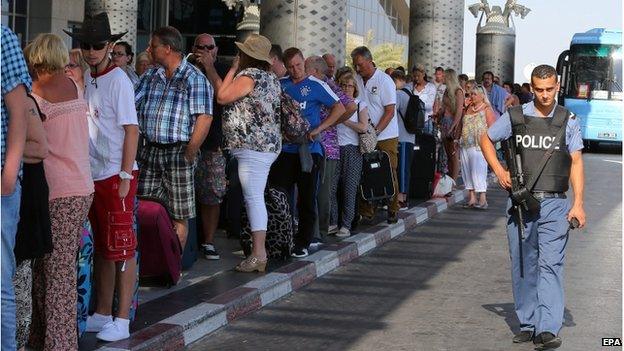
British tourists were forced to cut short their holidays
Mr Cameron was defeated in the Commons in 2013 when Tory rebels joined forces with Labour to oppose air strikes on Syrian government targets designed to deter the use of chemical weapons.
The 2013 vote focused on the Syrian president, not IS militants.
Parliament approved UK bombing of militant positions in Iraq last year. However, MPs were not asked at the time to authorise strikes across the border in Syria.
Heading home
The National Security Council meeting comes as ministers are facing criticism for advising UK holidaymakers to come home from Tunisia amid fears of another terror attack.
Last month 30 Britons were killed when a gunman opened fire on tourists staying in a popular Tunisian holiday resort. IS said it carried out the attack.
Tunisia has accused the UK of playing into terrorists' hands and some tourists complained they were being ordered out of the country.
After the Tunisian beach attack, Mr Cameron said IS posed "an existential threat" to the West, and its members in Iraq and Syria were plotting "terrible attacks" on British soil and elsewhere.
- Published3 July 2015
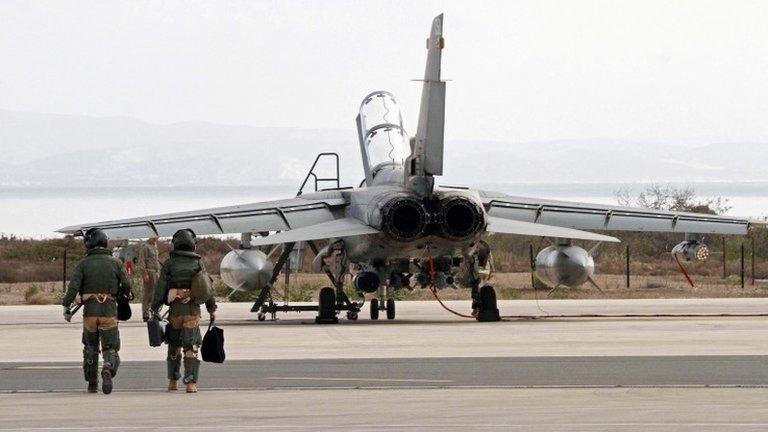
- Published7 July 2015
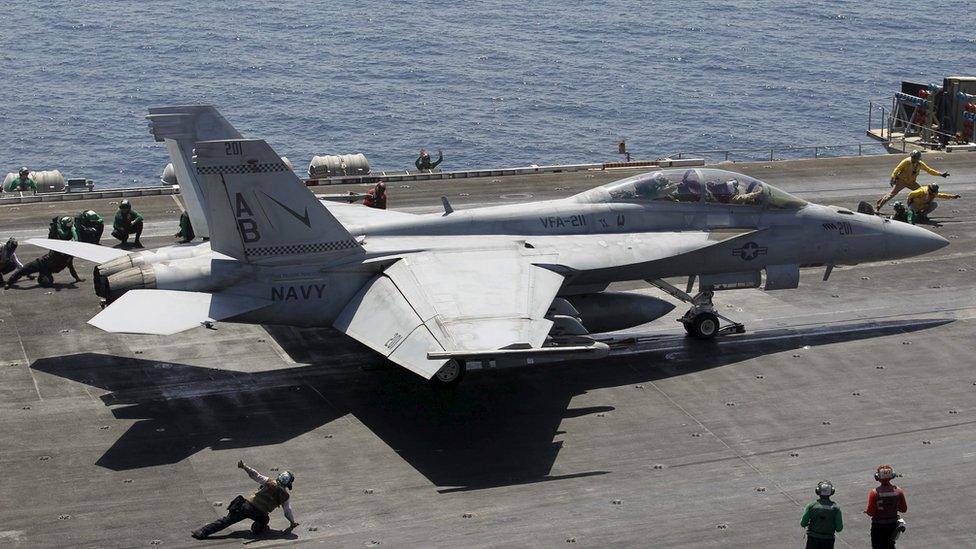
- Published11 July 2015
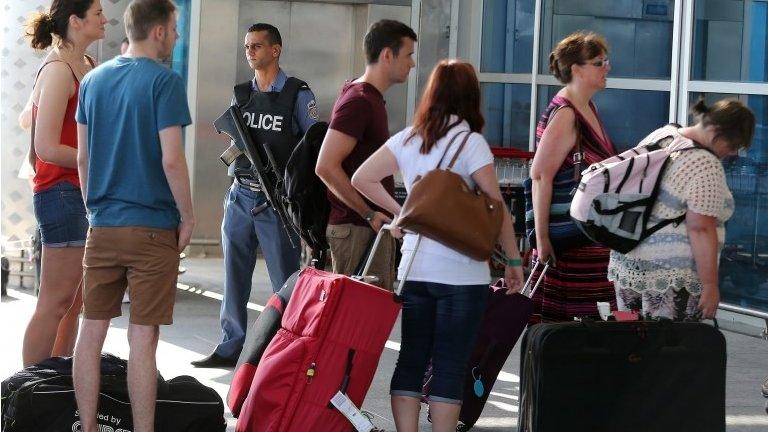
- Published1 February 2017
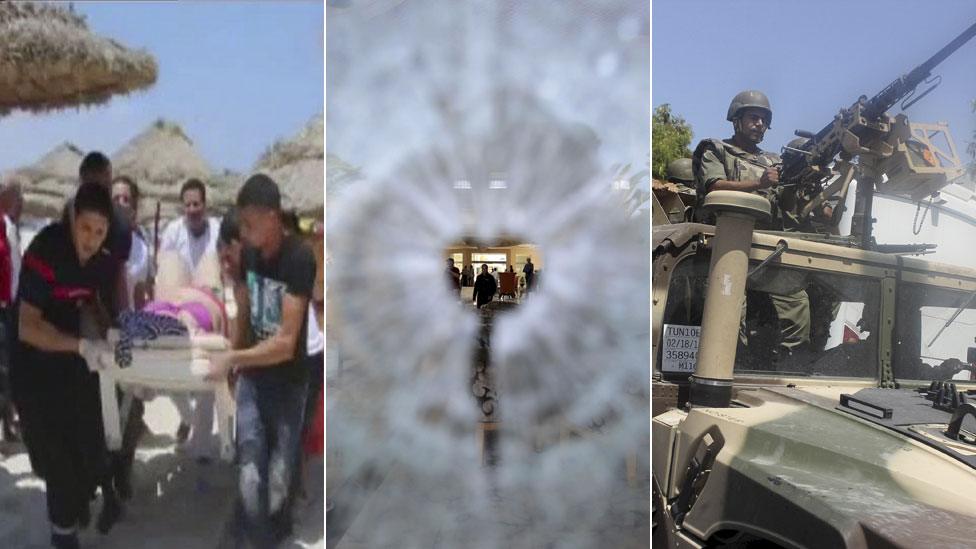
- Published29 February 2016
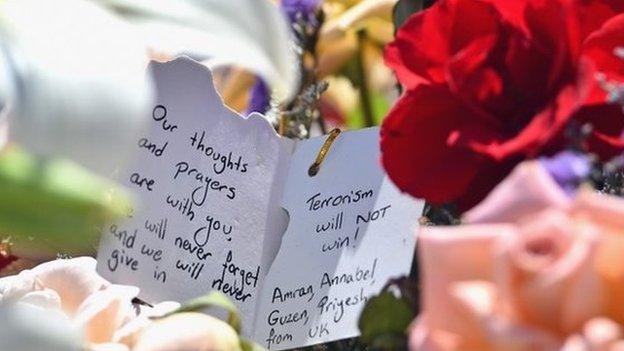
- Published30 June 2015
